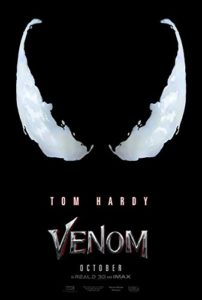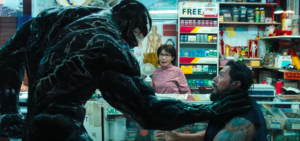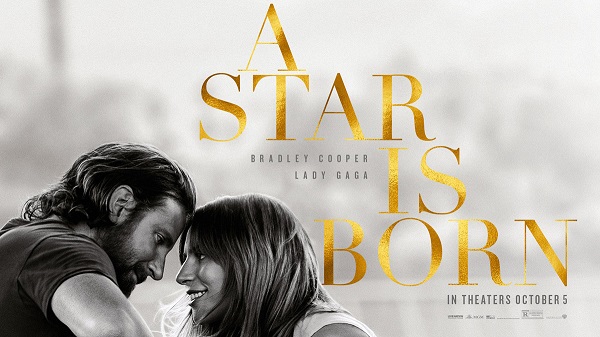 An otherworldly being inhabiting a human has been an oft-treaded conceit in the science fiction genre. The characters affected experience an assortment of interactions likened to symbiotic relationships found in the natural world. From the parasitic possession of Arthur Conan Doyle’s The Parasite and James Cameron’s Alien(s) to the heroic host trope of comics and video games. More often than not the parasitic being lives inside the host only to dominate or use up its life and/or resources, while the heroic host uses the inhabiting entity to gain or augment superpowers, i.e. Blue Beetle from the DC Universe or Mila Jovovich’s Alice from Resident Evil: Apocalypse. Of these common tropes, by far the rarest explored symbiotic relationship is commensalism, where one being benefits from the relationship to little or no detriment to the other.
An otherworldly being inhabiting a human has been an oft-treaded conceit in the science fiction genre. The characters affected experience an assortment of interactions likened to symbiotic relationships found in the natural world. From the parasitic possession of Arthur Conan Doyle’s The Parasite and James Cameron’s Alien(s) to the heroic host trope of comics and video games. More often than not the parasitic being lives inside the host only to dominate or use up its life and/or resources, while the heroic host uses the inhabiting entity to gain or augment superpowers, i.e. Blue Beetle from the DC Universe or Mila Jovovich’s Alice from Resident Evil: Apocalypse. Of these common tropes, by far the rarest explored symbiotic relationship is commensalism, where one being benefits from the relationship to little or no detriment to the other.
The commensal relationship between the extraterrestrial Klyntar Venom and Eddie Brock has always been interesting in the Marvel comics and specifically within the Spider-Man universe. With the release of Ruben Fleischer’s Sony/Marvel movie Venom, it was an opportunity to take many people’s favorite villain/antihero from the rogue’s gallery of Spider-Man and explore his twisted, multi-leveled dimensions. Venom is kind of this weird hybrid of Batman, Deadpool, and Spider-Man: equal parts funny, noble, but always painted with a darker brush who likes to eat living things and enjoys a good bout of violence. The slant of Venom being a biological amalgam of the inorganic Klyntar species and the human Brock, played by in this movie by Tom Hardy, lends an extra element of intrigue, especially given the modern-age obsession of our species being unable to out-live our poisoning of the planet.
Playing into this environmental concept is Brock’s foil and bad guy of Venom, the billionaire Elon Musk-like Carlton Drake, played by Riz Ahmed. Far from a mustache-twirling villain or a dark, brooding supervillain, Ahmed’s Drake seeks the endurance and well-being of humanity through the genetic hybridization of humans to the alien Klyntar. Problems arise when Drake’s ethics are exposed as power-hungry, corrupt, and inhumane. Exemplified in a harrowing test of the amorphous Klyntar on a drifter name Isaac, Drake pontificates on Isaac’s patronymic origin in Genesis. He paints a picture of the biblical story only to twist the ending to fit his own means. It’s not God testing Abraham by the sacrifice of his son Isaac, but God abandoning the human race and he assures the gathered audience and Isaac, Carlton Drake will not abandon humanity. Ahmed injects terrifying megalomania into a seemingly sincere, well put together savant and businessman.
In contrast, Hardy’s Brock is a mess. His life has been mostly ruined by his own poor decisions combined with crossing Drake in a journalistic investigation. When the Klyntar Venom chooses Eddie as his host, his life doesn’t really seem to get much better. The symbiotic relationship is commensal, as Eddie gains little from Venom imposing his appetite for meat and penchant for violence. Despite the concern of Brock’s ex-fiancée Anne (Michelle Williams), Venom dominates the relationship and makes it his goal to prevent Drake and the lead Klyntar Riot from escaping Earth to bring an apocalyptic-like invasion of Klyntar back to the planet.
 Hardy’s performance is of considerable note. While usually the world’s greatest mumbling actor, in Venom he yells, groans, and grimaces his way into an inexplicably great mentally unstable/possessed protagonist. His commensal relationship with Venom briefly yet unsatisfyingly explores living with and battling demons. Brock’s pain at his past decisions and regrets shines in Hardy’s performance. The likening of an invading, sentient being to the affliction of mental illness could have been intriguing. There is something about Hardy playing violent, unhinged characters–see Bronson or Peaky Blinders–that seems to work and communicate way more than what is explicitly on-screen. Hardy makes it work.
Hardy’s performance is of considerable note. While usually the world’s greatest mumbling actor, in Venom he yells, groans, and grimaces his way into an inexplicably great mentally unstable/possessed protagonist. His commensal relationship with Venom briefly yet unsatisfyingly explores living with and battling demons. Brock’s pain at his past decisions and regrets shines in Hardy’s performance. The likening of an invading, sentient being to the affliction of mental illness could have been intriguing. There is something about Hardy playing violent, unhinged characters–see Bronson or Peaky Blinders–that seems to work and communicate way more than what is explicitly on-screen. Hardy makes it work.
The problem with all this wonderful plotting and Hardy’s performance is the runtime builds to Brock and Drake’s inevitable conflict but motivations are largely absent and choices for the movie’s direction seem as random as Venom’s choice of who’s head to bite off. To boil it down to one example, at an important juncture in the movie, Venom tells Brock what convinced him to stay on planet Earth is Brock himself. There has been literally nothing before or after this point in the movie to give us any compelling evidence Brock has done anything to steer Venom to his expressed desire to stay. It’s the classic error of the movie telling us what the characters think instead of showing us and it blunders into this error with narrative killing regularity.
Perhaps this explains the divide between critics and audiences. Narratively it doesn’t work. The movie itself isn’t inventive or risk-taking. The action isn’t anything to write about (except this last sentence). It doesn’t and shouldn’t be any good. Critics are bound to not find much to hang their hat on and critically pan it. This writer was ready to do the very same. But it works. The actors make due with what they have and grind out an above average movie. Which is saying a lot about blockbusters in 2018.
Review| Venom
Previous articleReview| A Star Is Born Next article Them! (1954) & Indiana Jones and the Kingdom of the Crystal Skull (2008)
Next article Them! (1954) & Indiana Jones and the Kingdom of the Crystal Skull (2008)
 Next article Them! (1954) & Indiana Jones and the Kingdom of the Crystal Skull (2008)
Next article Them! (1954) & Indiana Jones and the Kingdom of the Crystal Skull (2008)
